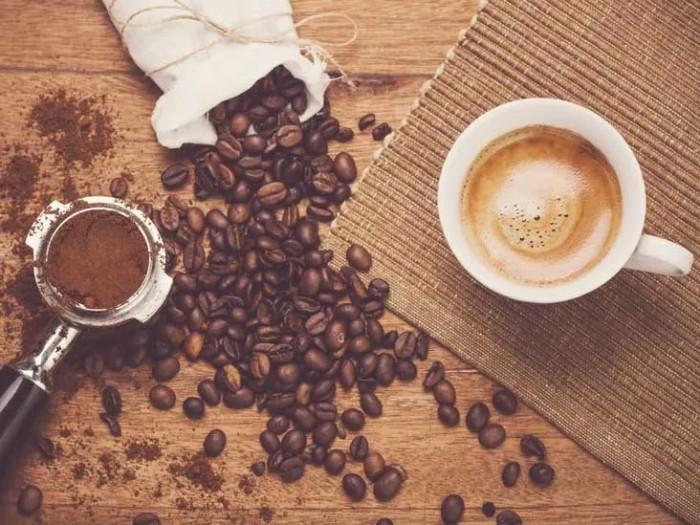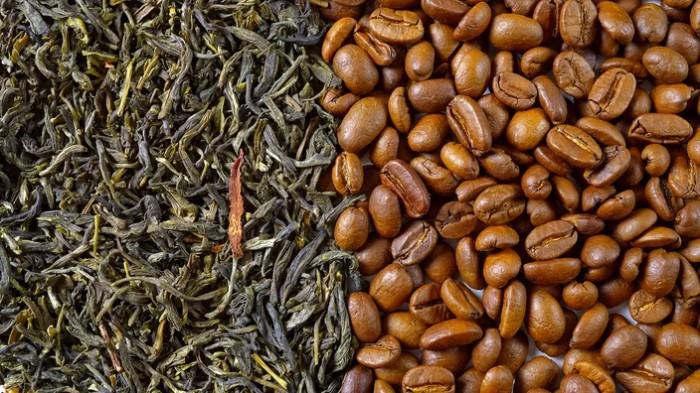Most of us reach for a cup (or two) of coffee to jumpstart our mornings! But how much caffeine is actually in that hot cup of Joe? While it’s true that too much caffeine can have some side effects, the right amount can help support focus and energy levels.
In this blog post, we'll look at how much caffeine is typically found in different coffee beverages such as espresso shots, drip coffee, and cold brews — so you can make an informed choice next time you order your favorite pick-me-up.
What is Caffeine, and why is it important to know its content in coffee
Caffeine is a naturally-occurring stimulant found in coffee plants and leaves of several other plant species. It is the most widely consumed psychoactive drug globally, with 80% of adults consuming it daily. Caffeine has numerous physiological effects on the body, including increased alertness, energy levels, and concentration.
Knowing how much caffeine is in coffee can help you manage your daily stimulant intake. Too much caffeine can lead to adverse side effects such as insomnia, nervousness, jitters, increased heart rate, and restlessness.
In order to make wise choices about your caffeine intake, it is crucial to understand how much caffeine is present in various types of coffee.
Different types of coffee and their caffeine content

Depending on the type of coffee and the method of preparation, the quantity of caffeine in it varies greatly. Caffeine levels in a single cup of brewed coffee typically range from 95 to 165 milligrammes (mg). Espresso, on the other hand, only has 64 mg per shot. However, espresso shots can have more caffeine per ounce because they are often served in smaller amounts than brewed coffee. Both brewed and espresso coffees that have been decaffeinated contain much less caffeine than their conventional equivalents.
The amount of caffeine in a cup of coffee is also influenced by the type of roast. Lighter roasts typically have more caffeine than darker roasts, which typically contain less.
This is because the longer roasting process breaks down the caffeine in the beans. The brewing method will also affect caffeine levels since a more concentrated amount of coffee grounds can lead to stronger and higher-caffeine brews.
It's critical to keep in mind that depending on the type of coffee, the roast, and the brewing technique, the amount of caffeine in any one cup of coffee can vary significantly. As a result, it's crucial to monitor your caffeine intake to prevent overcaffeination. You may choose the appropriate amount of caffeine for you by being aware of these aspects.
Factors that affect the amount of caffeine in coffee
Coffee contains varying amounts of caffeine based on a number of variables, including the type of bean used, the roast level, the brewing technique, and even how it is ground. For instance, due to their increased caffeine concentration, light-roasted beans often contain more caffeine than dark-roasted beans.
Similarly, espresso shots typically contain more caffeine than brewed coffee due to the higher concentration of grounds. Additionally, using a finer grind will produce more caffeine from the beans during brewing.
It is also important to note that decaffeinated coffee still contains trace amounts of caffeine - typically between 2-12 mg per cup. This means consuming too much caffeine is still possible, even if you drink decaffeinated coffee.
The amount of caffeine in any given cup of coffee is only possible by knowing the exact details of the brewing process. However, as a general rule of thumb, an 8-ounce cup of brewed coffee typically contains between 95-200 mg of caffeine. To get the most accurate estimate of the amount of caffeine in your cup, it is best to check with the manufacturer or coffee shop where you are purchasing your coffee.
By understanding these factors and being mindful of how much caffeine you consume, you can ensure you enjoy your cup of coffee without any adverse effects.
Recommended daily intake for different age groups

The recommended daily intake of coffee is determined by age. According to the FDA, adults' daily caffeine intake should not exceed 400mg daily. For pregnant women, this number drops significantly to 200mg or less; for children aged 4-6, 45mg is considered safe; and for those 7-9 years old, the maximum is 62mg.
While these numbers help understand how much caffeine is too much for each age group, it's important to note that everyone's body reacts differently to coffee due to various factors such as weight and health conditions. Therefore, an individual should always monitor their intake accordingly.
Health benefits and drawbacks associated with consuming caffeine
Coffee provides a range of health benefits, including improving alertness and concentration; reducing the risk of developing type 2 diabetes and some types of cancer; increasing metabolic rate for improved weight loss; and providing a source of antioxidants. These are just some examples, but much more research-based evidence supports coffee's positive effects.
Caffeine consumption, however, can also have some drawbacks depending on the amount consumed. Overconsumption of caffeine can lead to symptoms such as restless sleep, anxiety, irritability, and headaches. It is, therefore, important to be mindful of how much caffeine you consume each day to avoid these adverse effects.
Understanding how much caffeine is in your coffee and monitoring your daily intake is important to enjoy the health benefits of coffee. With this knowledge, you can decide how much caffeine is right for you and ensure you get the most out of every cup.
FAQs
How much caffeine is in a standard coffee?
The amount of caffeine in a standard cup of coffee varies from 95-165 mg, depending on the type and size. However, some specialty coffees can contain up to 200 mg of caffeine per cup.
Is 200 mg of caffeine a lot?
If consumed excessively, 200 mg of caffeine is a lot and may cause anxiety and other symptoms. It is important to check the label of your coffee before you drink it so that you can adjust your daily intake accordingly.
How much caffeine is in Nescafe coffee?
Nescafe coffee typically contains around 108 mg of caffeine per cup. However, the exact amount can vary slightly depending on the type and size.
Conclusion
Understanding the amount of caffeine in coffee is an important factor in ensuring coffee consumption is in moderation. Some caffeinated coffee can provide great health benefits without overdoing it properly. By considering the recommended daily limits and using the measurement method described above to determine the right scope of caffeine intake, you can reap all the positive aspects while avoiding any drawbacks of consuming too much caffeine.

Weight Loss Fuel: Guide to the Best Protein Shake
Jan 04, 2024

Is It Safe to Sleep in Contacts? Unraveling the Facts
Jan 25, 2024

Why You Should Eat Pomegranate: 10 Incredible Health Benefits
Jan 07, 2024

Effective Shoulder Strengthening Exercises for Robust Musculature
Nov 09, 2023

Gluten-Free Sausages: Enjoyable Options for Breakfast and Dinner
Jan 06, 2024

Optimizing Health Through Exercise
Dec 30, 2023

Yoga – An Activity for All Ages With Plenty of Benefits
Dec 17, 2023

How Much Caffeine in Coffee
Dec 20, 2023



